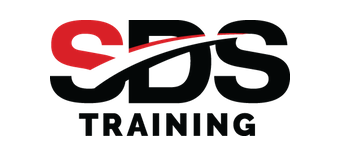Just like that it’s good-bye 2018 and hello 2019! (side note: can you believe it’s 2019?!)
Whilst we can appreciate there is a period of adjustment as far as a new year is concerned (think adamently swearing to work off your Christmas feast(s), trying to locate your brain upon returning to work and reminding yourself it’s 2019 when attempting to write the date), it can also be the perfect opportunity to reinvent and improve ourselves.
Defining Your Goals

2018 might not have panned out to be everything you had hoped for but 2019 definitely can be! Set aside some time in the coming days to reflect on your past year and plan ahead for the next 12 months – Where do you want to be? Who do you want to be? How are you going to that place? When are you going to start?
Your dreams may be big (think world domination) or they may be small (think simply starting whatever it is you’ve always wanted to achieve). It’s important to remember that regardless of which category you fall into, your dreams are valid and we’re here to act as a pathway for you to actualize them.
Get S.M.A.R.T About Your Goal Setting

Make Your Goals Specific
Whilst it’s all well and good to set goals and make new year resolutions, unless you have a specific target in mind your dreams can often fall by the wayside. It’s important to take some to sit down to really explore what it is you want to achieve and why you wish to achieve it.
If your new years resolution is to get a ‘get a job’, you could be falling into the ambiguous category when it comes to your goal setting. Instead, investigate the steps required to better your position to attaining employment.
To make your goal setting more specific, you may choose to break your long-term goal (gaining employment) into short-term goals.
One way to do this is to answer the five ‘W’ questions:
- Who is required action your goals?
- What exactly is it you’re trying to achieve?
- Why do you want to achieve your goals?
- When do you want to achieve your goals?
- Which obstacles are standing between you and your goal?
As a result, your goal may now look something a little like this: “Due to outgoing expenses, I want to obtain employment. As I have an interest in construction work, I’d ideally hope to obtain work in this industry in order to feel fulfilled. It is a requirement to hold a CPCCWHS1001 Prepare to work safely in the construction industry (more commonly referred to as a ‘White Card’). Seeing as I’ve never had experience working within this industry, I would first need to enrol in training to obtain this before hoping to fulfill my goal of obtaining work in the industry”.
Bonus Tip: I suggest writing your goals down or telling someone you trust about them to help keep you accountable!
Make Your Goals Measurable
Now that you’ve got a clear goal defined and you have a plan for how you’re going to achieve it, it’s important to clearly map out how you plan to measure your goals otherwise how will you know whether or not you have achieved them?
The simplest way to make your goals measurable is by setting target dates for when you plan to have them achieved by. Breaking your larger goal into smaller, more attainable goals, the task overall won’t feel quite so daunting and you will be less likely to procrastinate.
Your smaller goals may resemble the following:
- Enrol with a Registered Training Organisation (RTO) to complete my CPCCWHS1001 Prepare to work safely in the construction industry (White Card).
- Meet industry experts who can assist with leading me on the right path to employers within the industry.
- Apply for a role within the construction industry, having successful obtained my White Card.
- Obtain employment (and therefore satisfy my goal!)
You should set certain dates you wish to achieve each milestone by to avoid any waning commitment to your overall goal.
Make Your Goals Attainable
Whilst a certain portion of this goal is out of your hands (i.e. you can’t force an employer to employ you), you can improve your employ-ability by researching and learning as much as possible about the construction industry, potential employers in the industry and planning ahead by assessing the skills you may require to enter and thrive.
It wouldn’t go astray to clean up your resume or brush up on your interview etiquette as well, as both will assist with actually landing you a job (click here for interview tips if you’re a bit rusty in this department).
Make Your Goals Realistic
Setting realistic goals goes hand in hand with making your goals attainable. The more you improve you level of knowledge, skill and experience in areas related to your goal, the more your confidence will grow – And so it should! Your likelihood of obtaining employment will skyrocket by taking these vital steps towards your goal (and therefore your goal becomes more realistic in nature).
Finding the balance between challenging yourself and setting downright unattainable goals can be difficult. For example, it’s unrealistic to set yourself the goal of obtaining a job in the construction industry by tomorrow because that’s highly improbable given the level of knowledge and experience you have. Alternatively, setting the goal to obtain your White Card by the end of the month and apply for 5 construction related roles per week is a far more achievable goal to strive towards.
Set Timely Markers To Track Your Progress
Ensuring the goals you have set yourself are timely is a critical part of the success in satisfying them. It’s unlikely you will keep the same motivation for your goals as when you first set them, so it’s important to create some urgency with regards to completing them.
Fortunately, in this example it’s easier to create a sense of urgency in attaining your goal as the urgency is 100% real (bills and outgoing will do that to you). However, if there is less of an actual urgency to your set goals, it becomes vital for you to create at least a perceived sense of urgency.
This may mean you decide you want to achieve your overall goal in six days, six months or even six years. Provided you have an ‘end-date’ (keep in mind it should be challenging to keep you motivated but attainable and realistic to ensure you give yourself the best chance of succeeding) and you have a clear path in your mind of what you specifically want to achieve and how you’re going to achieve it – You’re well on your way.
Still Confused? Don’t Sweat It – There’s Plenty Of Help Out There!

Training and development are the fundamental building blocks to a successful career, life and future. We’re constantly students in life, with an endless array of information at our fingertips (cheers internet), so why not develop your skills to a level you could end up being paid for?
There are many benefits to entering or working your way up the corporate ladder in the building and construction, mining, health, rural, civil, rail, transport and logistics industries and with an increasing demand in each, consider this the sign you’ve been waiting for to expand your skill set and dive into the industry of your dreams.
Perhaps finances have stopped you taking the leap in the past? We’ve got you covered! There are millions (okay definitely not millions but there are a lot!) of subsidies available to suit people from all walks of life, at various stages of their career and with different levels of knowledge and experience.
Don’t know how or where to start? Don’t stress – Nobody expects you to know everything and everybody needs to start somewhere! For a list of our course offerings and training subsidies available, please visit click here.





